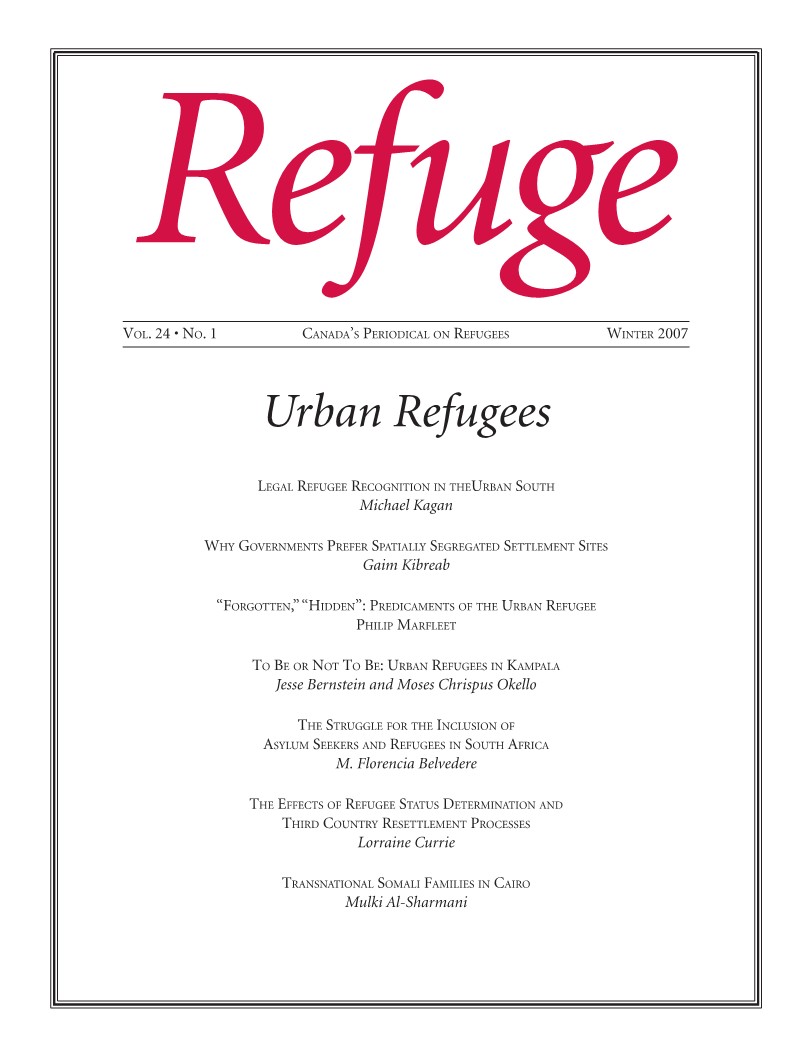Legal Refugee Recognition in the Urban South: Formal v. de Facto Refugee Status
DOI:
https://doi.org/10.25071/1920-7336.21364Keywords:
Africa, Middle East, Global South, urban refugees, de facto refugees, law, refugee status determination, marginalizationAbstract
The legal relevance of the “urban refugee” concept in the Middle East and Africa stems from the practice of practicing different forms of refugee status determination (RSD) in rural as opposed to urban areas. Urban refugees are usually subject to rigorous individual adjudication, while rural refugees are typically recognized on a prima facie basis. This difference in procedure has no basis in the substance of refugee law, and it marginalizes urban refugees in two key ways. First, in Africa and the Middle East, refugee status recognition is used by host governments to prevent refugee integration, to force refugees to live far from population centres, and to transfer responsibility for their welfare to international agencies. Second, individualized RSD procedures in wide use by the United Nations generally lack key fairness safeguards, increasing the risk that genuine refugees will be wrongfully rejected. This phenomenon means that urban refugee populations will often be systematically undercounted, and will include a significant number of de facto refugees who are in fact refugees in danger of refoulement, but whose applications were rejected and who thus have no access to the protection and resources otherwise targeted at refugees.Metrics
Downloads
Published
How to Cite
Issue
Section
License
Copyright (c) 2007 Michael Kagan

This work is licensed under a Creative Commons Attribution-NonCommercial 4.0 International License.
Refuge authors retain the copyright over their work, and license it to the general public under the Creative Commons Attribution-Non Commercial License International (CC BY-NC 4.0). This license allows for non-commercial use, reproduction and adaption of the material in any medium or format, with proper attribution. For general information on Creative Commons licences, visit the Creative Commons site. For the CC BY-NC 4.0 license, review the human readable summary.







